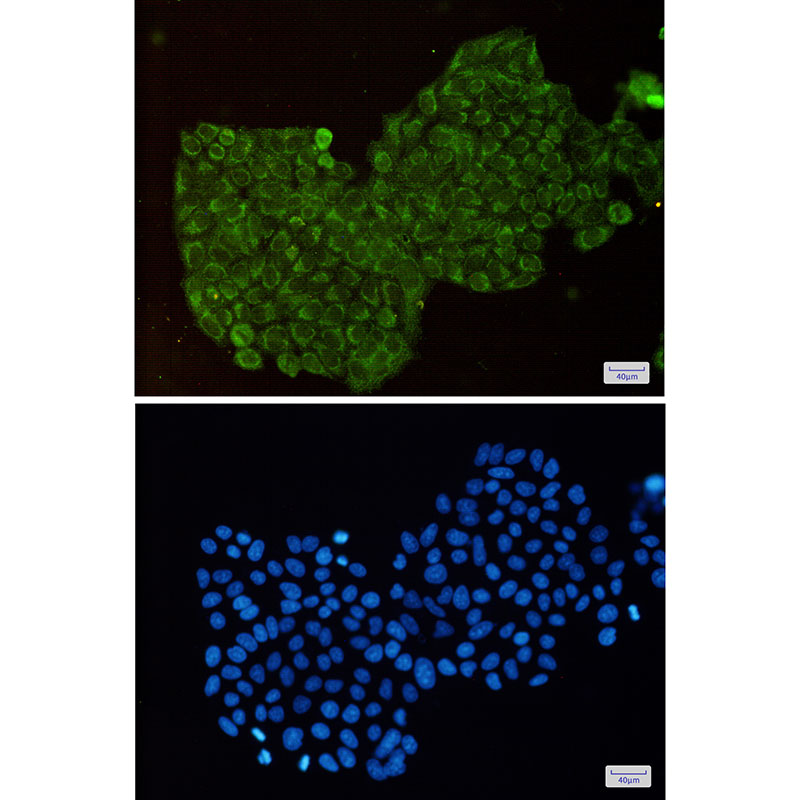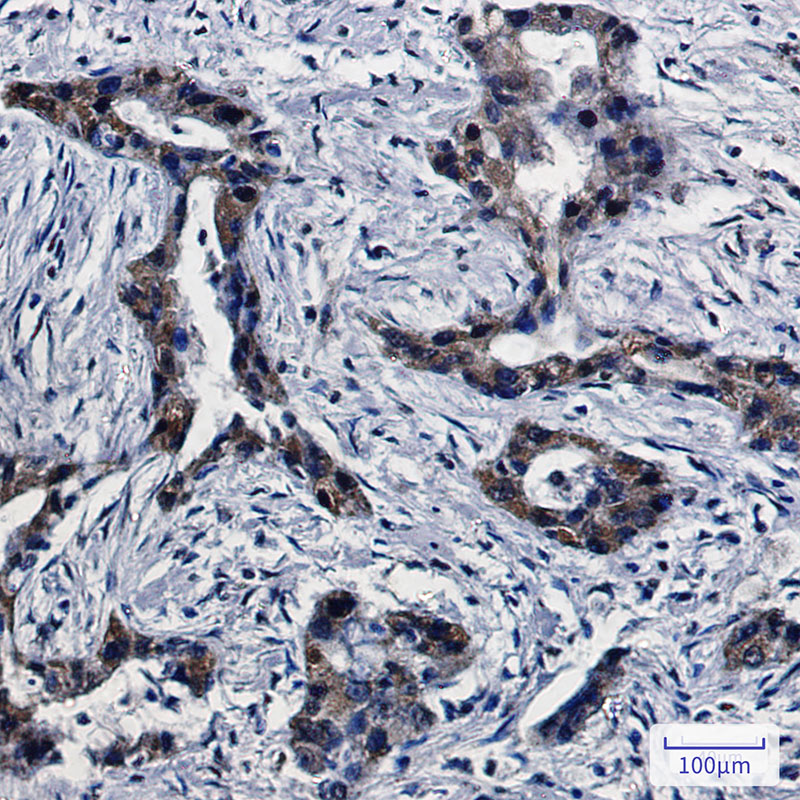


| WB | 咨询技术 | Human,Mouse,Rat |
| IF | 咨询技术 | Human,Mouse,Rat |
| IHC | 1/50-1/100 | Human,Mouse,Rat |
| ICC | 1/50-1/200 | Human,Mouse,Rat |
| FCM | 咨询技术 | Human,Mouse,Rat |
| Elisa | 咨询技术 | Human,Mouse,Rat |
| Aliases | DPYD; Dihydropyrimidine dehydrogenase [NADP(+)]; DHPDHase; DPD; Dihydrothymine dehydrogenase; Dihydrouracil dehydrogenase |
| Entrez GeneID | 1806 |
| WB Predicted band size | Calculated MW: 111 kDa; Observed MW: 111 kDa |
| Host/Isotype | Rabbit IgG |
| Antibody Type | Primary antibody |
| Storage | Store at 4°C short term. Aliquot and store at -20°C long term. Avoid freeze/thaw cycles. |
| Species Reactivity | Human,Rat |
| Immunogen | A synthetic peptide of human DPD |
| Formulation | Purified antibody in TBS with 0.05% sodium azide,0.05%BSA and 50% glycerol. |
+ +
以下是3条关于DPD抗体的参考文献概览(注:文献标题与作者为示例性描述,具体文献需根据实际检索确认):
---
1. **文献名称**:*Dihydropyrimidine Dehydrogenase Deficiency and 5-Fluorouracil Toxicity*
**作者**:Van Kuilenburg ABP, et al.
**摘要**:研究DPD酶缺乏与5-氟尿嘧啶(5-FU)化疗严重毒性的关联,通过抗体验证患者DPD蛋白表达水平,提出基于抗体检测的个体化用药策略以降低风险。
2. **文献名称**:*Immunohistochemical Quantification of DPD in Colorectal Cancer Tissues*
**作者**:Collie-Duguid ESR, et al.
**摘要**:开发基于抗体的免疫组化方法定量结直肠癌组织中DPD表达,发现低表达患者对5-FU化疗响应更佳,支持抗体检测用于疗效预测。
3. **文献名称**:*DPD Antibody-Based Enzyme Activity Assay for Precision Oncology*
**作者**:Morel A, et al.
**摘要**:结合DPD特异性抗体与分光光度法,建立酶活性检测技术,用于快速评估患者DPD功能状态,指导氟嘧啶类药物的安全使用。
---
如需具体文献,建议通过PubMed或Google Scholar搜索关键词“DPD antibody”“5-FU toxicity”“dihydropyrimidine dehydrogenase detection”获取最新研究。
DPD (Dihydropyrimidine Dehydrogenase) antibodies are tools used to study the enzyme DPD, which plays a critical role in pyrimidine metabolism. DPD catalyzes the initial step in the degradation of thymine and uracil, and is essential for the catabolism of 5-fluorouracil (5-FU), a widely used chemotherapeutic agent. Deficiencies in DPD activity, often due to genetic variants (e.g., *DPYD* gene mutations), can lead to severe toxicity in patients receiving 5-FU-based therapies, as impaired drug clearance results in prolonged exposure to cytotoxic metabolites.
DPD antibodies are primarily employed in research and diagnostics to quantify DPD protein expression or assess enzyme activity indirectly. Immunohistochemistry (IHC), ELISA, or Western blotting with DPD-specific antibodies helps identify patients at risk of 5-FU toxicity, enabling personalized dosing strategies. These antibodies also aid in studying DPD regulation in cancer biology, as altered DPD levels may influence tumor sensitivity to fluoropyrimidines.
Clinically, DPD testing (via genotyping or phenotyping) is recommended before 5-FU administration in some regions. However, antibody-based assays complement genetic testing by detecting functional enzyme deficiencies unrelated to known *DPYD* variants. Despite their utility, challenges include standardization across platforms and interpreting low DPD expression in heterogeneous tissues. Ongoing research aims to refine antibody-based diagnostics to improve predictive accuracy and expand applications in precision oncology.
×